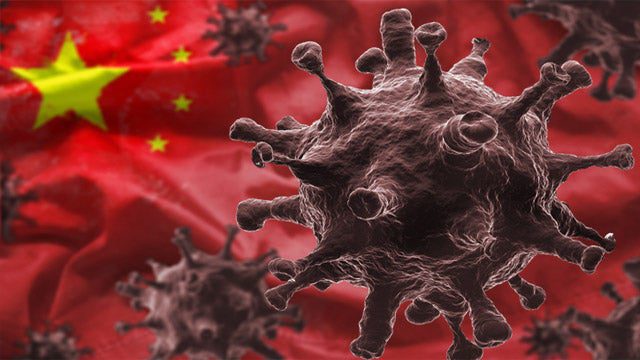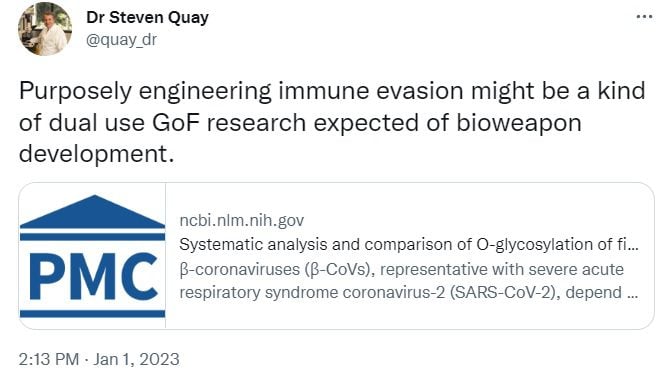
Is China’s military making COVID-19 variants?
Guest post by Lawrence Sellin, Li-Meng Yan and Ding-Gang Wang
The once prestigious, but now politically-contaminated science journal Nature, lauded Yunlong Cao as one of its top 10 scientists, “who helped shape science in 2022.”
Nature described Yunlong Cao as a “COVID predictor,” whose ”rich characterizations of emerging variants have allowed researchers to keep step with SARS-CoV-2 as it evolves,” particularly mutations related to evading or escaping the human immune response.
But is it the “prediction” or the “designing” of variants?
Yunlong Cao’s academic career provides an excellent example of how China uses “scientific chain migration” to access American knowledge, skills, technologies and U.S. government funding, which is fed back into China’s research and development programs, including those of the People’s Liberation Army.
Begun in the 1980s, scientific chain migration has involved successive waves of Chinese Communist Party and People’s Liberation Army scientists coming to the U.S. for training, some of whom remain, obtaining positions at American universities and research centers, becoming permanent residents or even U.S. citizens and then establishing themselves as “anchors” for additional waves of Chinese scientists to be trained in the U.S.
Yunlong Cao received his Ph.D. in June 2019 from Harvard University supervised by Professor Xiaoliang Sunney Xie.

Xiaoliang Sunney Xie earned a B.S. degree in chemistry from Peking University in 1984, and his Ph.D. in physical chemistry in 1990 from the University of California, San Diego. After a career at the U.S. Department of Energy’s Pacific Northwest National Laboratory, he became the first tenured professor at Harvard University among Chinese migrants, who came to the U.S. during the 1980s.
Xie became a member of the U.S. National Academy of Sciences, the U.S. National Academy of Medicine and the U.S. Academy of Arts and Sciences.
Xiaoliang Sunney Xie received about $25 million in research funding from the U.S. National Institutes of Health, a significant amount of that money being used to train Chinese students and conduct experiments with scientists in China.
Xie returned to China in November 2018 to become Professor and Dean of Sciences at Peking University.
Yunlong Cao joined his mentor at Peking University and both are co-founders of Beijing Danzhong Biopharmaceutical Company, which conducts antibody research and development in competition with American companies.
Yunlong Cao is the son of People’s Liberation Army Major General Xuetao Cao, who was a student of Tianxing Ye, one of the founding scientists of China’s biowarfare program.
Xuetao Cao has published extensively with other People’s Liberation Army scientists on the immune response to viral infections, including the COVID-19 virus.
In 2019, Xuetao Cao was involved in a controversy related to the falsification of data.
Immediately upon returning to China, both Yunlong Cao and his mentor Xiaoliang Sunney Xie began collaborating with People’s Liberation Army scientists studying the immune response to the COVID-19 virus, including scientists believed to be highly-placed in China’s biowarfare program, such as Chengfeng Qin and Chuan Qin.
Internationally-respected physician and scientist Dr. Steven Quay has expressed his alarm regarding the apparent biowarfare direction of immune response experiments now being conducted in China.

Mutation and immune evasion or escape of the COVID-19 Omicron variants would not necessarily be a concern except for the disturbing reports of significantly increased transmissibility and lethality of the newly appearing variants in China, an unexpected phenomenon in the absence of contributing factors.
Given the overwhelming evidence that the COVID-19 virus was created in a Chinese laboratory with links to China’s biowarfare program, subsequent synthesis of new variants supervised by the People’s Liberation Army would not be an illogical assumption.
At a minimum, the world should be alert to that possibility.
No comments:
Post a Comment